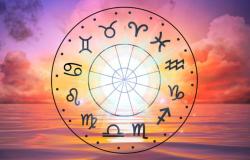Mythical work seeks visionary producer: while Hollywood is in perpetual search of pre-existing universes (and already established fan communities that go with them), a French science fiction monument remains desperately under the radar. René Barjavel’s extraordinary novel The Night of Times has never seen the slightest adaptation… even though it was initially developed for the cinema!
For science fiction fans, The Night of Times is a must-see. The tragedy of Eléa, published in 1968, continues to shake generations over its multiple reissues. Barjavel has delivered a popular novel with a noble, powerful and addictive meaning. For cinema, this is solid gold material!
Yet, apart from a comic strip, the world of Gondawa has been left fallow: no video game, no series, no film. Of course, a good book does not guarantee a good transposition. From Dune to Foundation, many SF classics have long been presumed unadaptable (complex concepts, fragmented narration, etc.) But the argument does not hold for a plot specifically designed for the cinema. And we have good reasons to think that The Night of Time would have found its place perfectly on the big screen.
My beloved, my abandoned, my lost, I left you there at the bottom of the world
The missed opportunity
In the summer of 1965, the director André Cayatte (author of the anti-death penalty plea We Are All Assassins) approached René Barjavel. He had the idea of a man from an ancient civilization who would tell the story of the fall of his world, and would like a screenplay to be developed around this concept.
The collaboration of the two men, who both navigate between literature and cinema, is promising. Revealed by the post-apocalyptic novel Ravage in 1943, Barjavel conceptualized the famous grandfather paradox (The Imprudent Traveler). He has since been considered the father of French science fiction.
When Cayatte contacted him, the novelist seemed to have put an end to his literary career. And if he still plays with the pen, it is exclusively for the seventh art: he notably contributed to the Don Camillo saga, to Henri Verneuil’s The Five-Legged Sheep, and ensured the French adaptation of the dialogues of Luchino Visconti’s The Leopard.
The ethnologist smiles. If there is a city, it was not built by penguins.
While the two men have just spoken, Barjavel stumbles upon a pure fake news story: a dispatch claims that an American satellite above the South Pole has just recorded mysterious radio signals. The author crosses this wild idea with the idea of the man from an ancient world and sets to writing. The story struggles to get going until he brings it an essential cog: the character of Eléa. The author develops a synopsis of a few pages.
Producers are interested, and the machine is…






